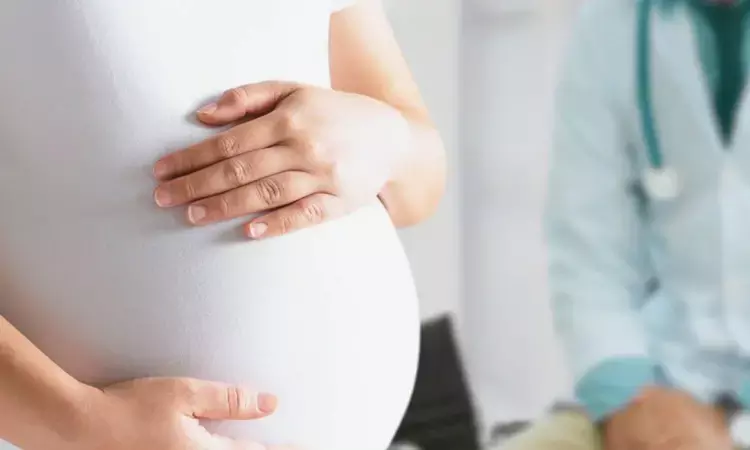- Home
- Medical news & Guidelines
- Anesthesiology
- Cardiology and CTVS
- Critical Care
- Dentistry
- Dermatology
- Diabetes and Endocrinology
- ENT
- Gastroenterology
- Medicine
- Nephrology
- Neurology
- Obstretics-Gynaecology
- Oncology
- Ophthalmology
- Orthopaedics
- Pediatrics-Neonatology
- Psychiatry
- Pulmonology
- Radiology
- Surgery
- Urology
- Laboratory Medicine
- Diet
- Nursing
- Paramedical
- Physiotherapy
- Health news
- Fact Check
- Bone Health Fact Check
- Brain Health Fact Check
- Cancer Related Fact Check
- Child Care Fact Check
- Dental and oral health fact check
- Diabetes and metabolic health fact check
- Diet and Nutrition Fact Check
- Eye and ENT Care Fact Check
- Fitness fact check
- Gut health fact check
- Heart health fact check
- Kidney health fact check
- Medical education fact check
- Men's health fact check
- Respiratory fact check
- Skin and hair care fact check
- Vaccine and Immunization fact check
- Women's health fact check
- AYUSH
- State News
- Andaman and Nicobar Islands
- Andhra Pradesh
- Arunachal Pradesh
- Assam
- Bihar
- Chandigarh
- Chattisgarh
- Dadra and Nagar Haveli
- Daman and Diu
- Delhi
- Goa
- Gujarat
- Haryana
- Himachal Pradesh
- Jammu & Kashmir
- Jharkhand
- Karnataka
- Kerala
- Ladakh
- Lakshadweep
- Madhya Pradesh
- Maharashtra
- Manipur
- Meghalaya
- Mizoram
- Nagaland
- Odisha
- Puducherry
- Punjab
- Rajasthan
- Sikkim
- Tamil Nadu
- Telangana
- Tripura
- Uttar Pradesh
- Uttrakhand
- West Bengal
- Medical Education
- Industry
Oral microbiome varies with life stress and mental health symptoms in pregnant women: Study

The number and type of microbes present in the saliva of pregnant women differ according to whether they are experiencing life stress and symptoms of anxiety, depression and post-traumatic stress disorder (PTSD), finds a study published in the open access journal BMJ Mental Health.
Although several studies have shown links between the diversity of microbes in the gastrointestinal tract and stress, anxiety and depression in pregnant women and new mothers, no previous study has looked at the association between the type and number of microorganisms in the mouth and throat—oral microbiome—and maternal mental health.
The study included 224 pregnant women enrolled in the Michigan Prenatal Stress Study assessed for recent stresses and mental health symptoms during their second trimester. Women were asked to provide saliva samples during the week of their assessments.
The results showed the oral microbiome varied with whether women had reported life stress, anxiety, depression or post-traumatic stress disorder (PTSD) symptoms during the assessments.
Oral microbiomes of women with high anxiety or depression symptoms showed high alpha diversity, which means they included many types of microbe species present at relatively even levels, i.e. it was less likely that one species dominated.
Oral microbiomes of women with high levels of PTSD symptoms instead showed high beta diversity, which means the specific microbe species in their saliva notably differed from the species found in women with low PTSD symptoms.
Specific stress and mental health traits were also associated with high levels of certain microbe species. Women who had experienced recent life stress had a greater abundance of species in the phylum Proteobacteria, while Spirochaetes was more abundant in women with high levels of depression symptoms. Greater numbers of Dialister species and species in the phylum Firmicutes were seen in women with levels of anxiety and depression symptoms, and species in the genus Eikenella were elevated in women with high anxiety, depression or PTSD.
Twenty two potential covariates were investigated to see whether they influenced changes in the microbiome. This analysis revealed that cigarette smoking could explain 7.2% of the variance seen in oral microbiomes, dental problems could explain 3.1%, intimate partner violence could explain 4.1% and unplanned pregnancy could explain 2%.
The authors highlight several study limitations, including insufficient data to examine other potential covariates related to diet and body weight, and the focus on a single time point in pregnancy. Women self-reported anxiety and depression measures which could have affected their accuracy, and there was no investigation of potential sources of microbes, such as the lower gut and long-term oral health.
The authors conclude, “Our study shows that numerous aspects of the oral microbiome in pregnancy are associated with women’s life stress and mental health. Importantly, these associations differ from studies of the gut microbiome and studies of non-pregnant people.”
They add that their findings suggest that the oral microbiome could be a potential target for interventions to improve poor psychological well-being during pregnancy.
“Successful targeting of the gut microbiome with probiotic treatment to improve maternal mental health could be extended in future studies to target oral cavity microbes through dietary changes, making recommendations for improving oral health, and probiotic treatments that might benefit mothers struggling with high life stress and poor mental health,” they say.
Dr Kamal Kant Kohli-MBBS, DTCD- a chest specialist with more than 30 years of practice and a flair for writing clinical articles, Dr Kamal Kant Kohli joined Medical Dialogues as a Chief Editor of Medical News. Besides writing articles, as an editor, he proofreads and verifies all the medical content published on Medical Dialogues including those coming from journals, studies,medical conferences,guidelines etc. Email: drkohli@medicaldialogues.in. Contact no. 011-43720751


